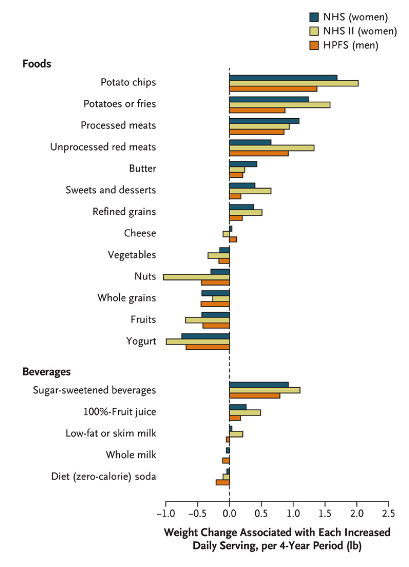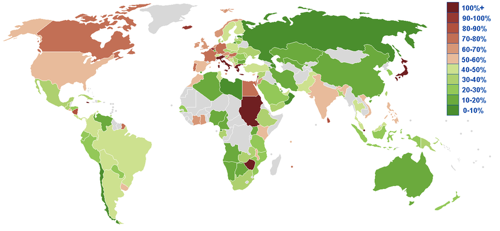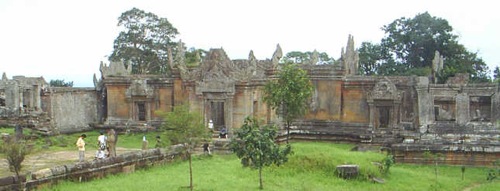
I’m interested in nutrition, and a New York Times story that ran last week caught my eye. The piece looks at a new study on diet and weight gain that was conducted by experts at Harvard.
The researchers followed nearly 121,000 non-obese men and women for 12 to 20 years. The study tracked the subjects’ weight gain or loss over that time and associated these changes in weight with particular foods.
The study also looked at exercise, smoking, and other factors. But what I found most compelling was the bit about calories, macronutrients, and what seems to be shifting perceptions regarding what causes weight gain. More on that below.
First, here’s the Times on the foods that were associated with the most weight gain:
French fries led the list: Increased consumption of this food alone was linked to an average weight gain of 3.4 pounds in each four-year period. Other important contributors were potato chips (1.7 pounds), sugar-sweetened drinks (1 pound), red meats and processed meats (0.95 and 0.93 pound, respectively), other forms of potatoes (0.57 pound), sweets and desserts (0.41 pound), refined grains (0.39 pound), other fried foods (0.32 pound), 100-percent fruit juice (0.31 pound) and butter (0.3 pound).
Foods that didn’t cause weight gain were full fat dairy, nuts, and especially yogurt, which was associated with weight loss.
The Times story focuses on how the study challenges the conventional notion that weight ultimately comes down to calories-in vs. calories-out, but there is also this bit about carbohydrates:
But, consistent with the new study’s findings, metabolism takes a hit from refined carbohydrates — sugars and starches stripped of their fiber, like white flour. When Dr. David Ludwig of Children’s Hospital Boston compared the effects of refined carbohydrates with the effects of whole grains in both animals and people, he found that metabolism, which determines how many calories are used at rest, slowed with the consumption of refined grains but stayed the same after consumption of whole grains.
The overview of the study itself, which is available on the New England Journal of Medicine Web site, is also an interesting read. The study’s title is “Changes in Diet and Lifestyle and Long-Term Weight Gain in Women and Men.”
From the “Discussion” section, under the “Article” heading:
Overall, our analysis showed divergent relationships between specific foods or beverages and long-term weight gain, suggesting that dietary quality (the types of foods and beverages consumed) influences dietary quantity (total calories). Several dietary metrics that are currently emphasized, such as fat content, energy density, and added sugars, would not have reliably identified the dietary factors that we found to be associated with long-term weight gain.
It continues:
For example, most of the foods that were positively associated with weight gain were starches or refined carbohydrates; no significant differences were seen for low-fat and skim milk versus whole-fat milk, and the consumption of nuts was inversely associated with weight gain.
And here’s a particularly interesting passage:
Our findings highlight gaps in our mechanistic understanding of how particular dietary characteristics alter energy balance, suggesting directions for future research regarding pathways involved in hunger, satiety, absorption, metabolism, and adipocyte growth or hyperplasia. In general, changes in the consumption of refined or processed foods and liquid carbohydrates or alcohol were positively associated with weight gain, whereas changes in the consumption of unprocessed foods such as whole grains, fruits, nuts, and vegetables were inversely associated with weight gain. These results suggest that future policies and research efforts to prevent obesity should consider food structure and processing as potentially relevant dietary metrics.
So, on one level, it’s not surprising that eating more fruits, vegetables, and dairy products is associated with losing weight. After all, if you’re consuming good, fiber-rich stuff, you feel satiated. If you’re full of healthy food, perhaps you’re not as inclined to eat processed foods.
However, what struck me about the study is the identification of refined carbs as a potential culprit in weight gain. My impression was that most traditional nutritional thinking still adhered to the idea that “caloric balance” is all that matters. That is, if you consume more calories than you use, you gain weight.
It seems notable that the study references conventional “dietary metrics” — fat, caloric density, and sugars — that might not be clearly associated with weight gain, and that it points out potential “future policies” that involve “food structure and processing.”
Of course, Gary Taubes, in his 2007 book “Good Calories, Bad Calories,” points to evidence that excess carbohydrates are to blame for rising rates of obesity and other “diseases of civilization.”
Perhaps the idea that refined carbs lead to weight gain, then, has become more widespread that I had thought? Are we witnessing an evolution of consensus, or this study an outlier?
If any readers have a perspective on this, I welcome any insight.
(All emphasis mine.)
(Image: NEJM.)





